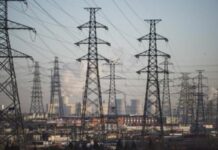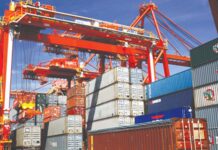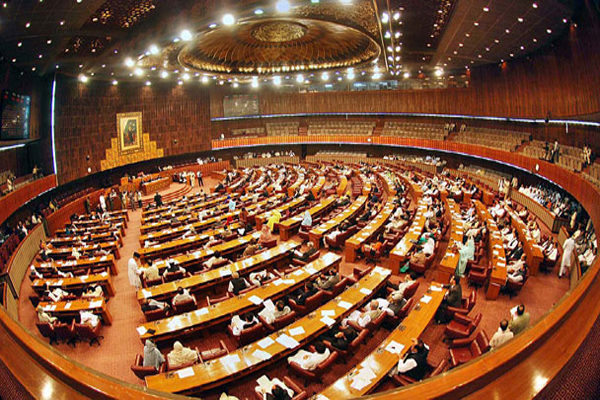The National Assembly of Pakistan witnessed a one-off event as the SDG Secretariat, in collaboration with Dehleez (Pakistan Local Democracy Dialogue), successfully conducted the first-ever “Consultative Session on Strengthening Article 140-A that governs Local Governments in Pakistan” on June 20, 2023.
This session, held at the National Assembly, aimed to foster inclusive and accountable governance at the grassroots level and contribute to the fulfilment of the Sustainable Development Goals (SDGs) in Pakistan.
Prominent Members of Parliament, representing various political parties, and civil society members came together to participate in the discussion. The session was co-chaired by Ahsan Iqbal, Minister for Planning, Development, and Special Initiatives, and Ms. Romina Khursheed Alam, convener of the SDGs Secretariat.
In the session, former Chairman District Council & Project Director of Dehleez, Ahmad Iqbal highlighted the need to address the fundamental challenges facing local governments in Pakistan. He emphasised the importance of amending the constitution and incorporating sections in Article 140-A to ensure continuity and safeguard the tenure of local governments, along with conducting timely elections.
Iqbal also shed light on the critical situation faced by elected local governments in Pakistan since the passing of the 18th Amendment. The absence of robust local governance has had severe implications for citizens’ quality of life, as evident from Pakistan’s current ranking of 125 out of 163 countries on the SDG Index. This highlights the urgent need to improve the local governance system and overcome deficiencies in various indicators.
What is Article 140-A?
Article 140-A of the Constitution of Pakistan pertains to the establishment and empowerment of local governments in the country. While the article was introduced with the aim of devolving power and ensuring effective local governance, there are certain issues and challenges associated with its implementation that have hindered the proper functioning of local governments in Pakistan. These issues include, political interference, limited fiscal space, less institutional capacity, and lack of authority and autonomy.
Another one of the important issues in the local governance of Pakistan is lack of continuity of tenure. This discontinuity results in little to no incentive for a forward looking developmental approach.
The article presents a use case for legislative reforms and these reforms have been under consideration since the 18th amendment was passed. It is important to remember that both the Charter of Democracy (2006) and the 18th Amendment (2010), were aimed at empowering local governments, A business that is unfinished to this day.
What are the proposed Reforms?
The presentation by Dehleez, outlined a draft amendment bill that aimed to address the root causes of weak local governments, primarily irregular elections and lack of continuity. The proposed amendment includes provisions to protect the tenure of elected local governments and mandates the Election Commission of Pakistan (ECP) to conduct elections within 90 days of their term expiration. This is expected to be a first in further devolution of power in essence of the 18th amendment.
Many distinguished Members of the National Assembly attended the session. In his role as chairperson, Minister Ahsan Iqbal expressed strong support from himself and his party for empowered local governments. He assured attendees of his commitment to support any legislation aimed at strengthening the role of local governments.
Mr. Mohsin Dawar stressed that provincial governments should transfer powers to local governments, as they have been doing for the past 15-20 years. He also highlighted the need for district-wise finance commission awards to ensure fiscal spending is devolved to the grassroots level.
Ms. Kishwar Zahra called for a revisit of Article 239(4) and supported the need for a Constitutional Amendment to empower local governments.
Mr. Khalid Warraich emphasised the immediate holding of local government elections and the importance of granting financial empowerment to local governments by giving them control over functions such as tax collection.
The session primarily focused on strengthening Article 140-A of the Constitution. It was aimed to create awareness among parliamentarians regarding the significance of empowering local governments and reinforcing the role and continuity of local governing bodies, thereby reiterating Pakistan’s commitment to democracy. Participants reached a consensus that local governments can only become effective when provided with fiscal and administrative autonomy, which can be achieved through Constitutional mandates.
This Consultative Session by the SDG Secretariat and Dehleez marks a significant step toward achieving sustainable development and the fulfilment of the SDGs in Pakistan by fostering inclusive and accountable governance at the grassroots level.

























The lack of term continuity is one of the main major issues with local governance in Pakistan. There is little to no motivation for a forward-thinking development strategy as a result of this disruption.